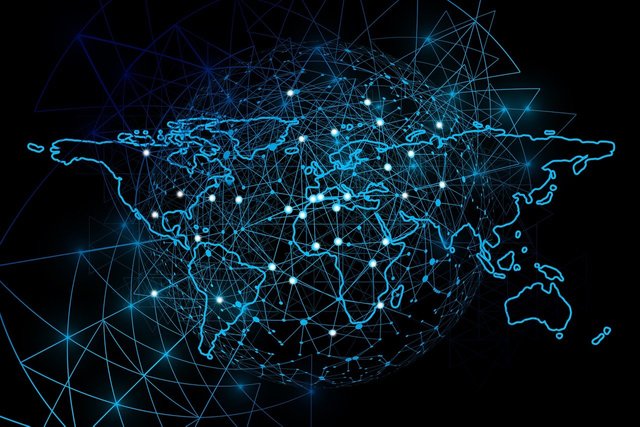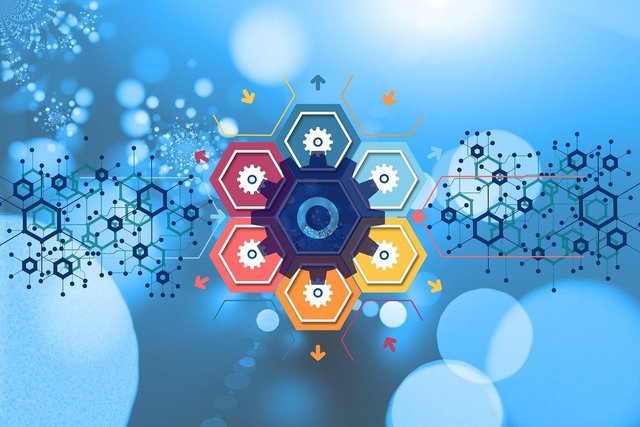Exploring DAOs (Decentralized Autonomous Organizations) in Governance
INTRODUCTION
Decentralized Autonomous Organizations (DAOs) originate from the Internet, however, are contributing to solving the question of the structure of governance in the current times. ADMVom. Nebule, including structure as per DAOs, is not again hierarchical or a central structure, it uses smart contracts and deploys on the technology of Blockchain. This format allows decision making to be carried out in a manner that is not only criteria based and non-redundant but also inclusive.
Token-based democracy is a more participatory and efficient way of governance through DAOs, enabling all members of the organization to vote on the issues that affect them most. This eliminates the use of middlemen, which enables all parties concerned with the running of the organization to participate. Rather in the case of DAOs, the address is focused on the trust-based approach to governance and its circumvention through decentralization.
People have been more receptive to the concept of governance through DAOs, particularly in the blockchain and cryptocurrency industries. DAOs, which started as a wrecking ball machine for decentralized finance (DeFi) platforms, have now penetrated into the blockchain projects as well and are becoming efficient in facilitating Participatory processes. They do not conform to the normal governance structures and thus, present how future Organizations can operate in this digital world.
- DECENTRALIZATION IN DECISION-MAKING
One of the greatest changes that D.A.Os have achieved in the area of governance with regard to its decentralization. In conventional forms of organizations, there are a few people who hold the decision making authority. However in D.A.Os, voting rights are vested on every token holder. Even those who make changes have the right to cast votes which means that all decisions represent the preference of the community.
There are instances in an organization where decisions can be hard to come by, emanating from those on top of the hierarchy. The same cannot be said of DAOs as they impose a culture of audit and quest of information by having explicit processes. With the implementation of the blockchain, every vote, transaction and proposal is saved on a distributed ledger open to any and all sources of examination.
This kind of openness diminishes the opportunity to engage in unethical practices or covert plans since everything that happens is done in public view. It also increases confidence in the contributors, since they are assured that their opinions count and have an effect on the policy of the organization. This democratic system provokes a shift of thinking, and thus new frameworks can be produced regarding governance system.
- TOKEN-BASED GOVERNANCE
Token-based governance is central to all decisions in DAOs. In this scenario, each token holder is capable of voting and voting power is based on the number of tokens held. This model bonds how much a member is willing to stake in the DAO to how much voting power they have.
This is advantageous in that it creates a system where people actively participate and seek to make profits from any governance exercised. Lords of the purses are more or less forced into making choices that favor health of the organization, as they have investment in the organization.
But it also has its own weaknesses for example, concentration of power in the hands of a few which is holders of many tokens. In worst situations, rich participants might coordinate their votes rendering the ideal purpose of constituting DAOs redundant. Fighting such imbalances usually calls for using tools such as quadratic voting or reputation systems that would equilibrate the drum.
- SMART CONTRACTS AND AUTOMATION
DAOs rely on smart contracts as a core foundational pillar to facilitate several governance functions. These types of contracts are written based on certain parameters; and action is taken when specific requirements are met. For instance, one could have smart contracts where the outcome of the voting is automatic or distribution of funds is done automatically based on preset conditions.
The governance processes are made more efficient, and human error managed as smart contracts through their automated processes eliminate the manual element of governance. Using the smart contracts ensures that there is also accountability since all the rules and actions taken are written down on the blockchain, which is public and cannot be altered.
Quite a bit of this action can optimize relatively complex processes of decision making so that processes are done at the right time and in the right order. Conversely, smart contracts rely so much n the quality of code and any incorrect lines or security oversights can dent the operational structure of the DAO; it is susceptible to security breaches. Smart contracts require protective measures to maintain entered properties hence regular checking and improvement is mandatory.
- CHALLENGES AND LEGAL IMPLICATIONS:
DAOs come with appealing prospects of governance. However, they tend to have a lot of issues that come into consideration when dealing with the issue of legal issues. Conventional legal systems revolve around centralized organizations that have identifiable leaders and those that can adequately be held accountable. DAOs have no central authority and as such tend to be in most cases illegal which lead to potential problems with regulating and arbitrating.
One of these issues is who is liable for what in a DAO. If all goes wrong, knowing where to put the blame remains an issue. This absence of a legal structure makes it difficult in managing disputes or resolve any litigation. There are a few areas that seem to be in a stage where they can seek how to develop and recognize either a legal or political identity for DAOs; however, developments in this field still seem to be in the air.
Also, DAOs could potentially face political issues as they gain the requisite size and expansion necessary such as decision paralysis or lack of voters’ interest. The quest for the appropriate degree of centralization which guarantees efficacy in governance bears no cessation and implementation processes does not even come close to the end; much optimal is dormant when governance potentialities of DAOs are enthused and brought to real practice.
CONCLUSION
Rather, DAOs are like revolutionizing governance as they upend the existing dynamics of governing through decentralization, transparency, and collective intelligence decision-making. Although tremendous merits that include enhanced openness and less chances of greater inclusivity, they also face legal and operational challenges. As DAOs continue to evolve, they will play a critical role in shaping the future of governance in both digital and real-world contexts.
.webp)


Twitter share
https://twitter.com/Saintkelvin18/status/1844089028603412573?t=dXvIqjgdwD4pfnsDgxwJTQ&s=19
Note:- ✅
Regards,
@theentertainer
Thanks